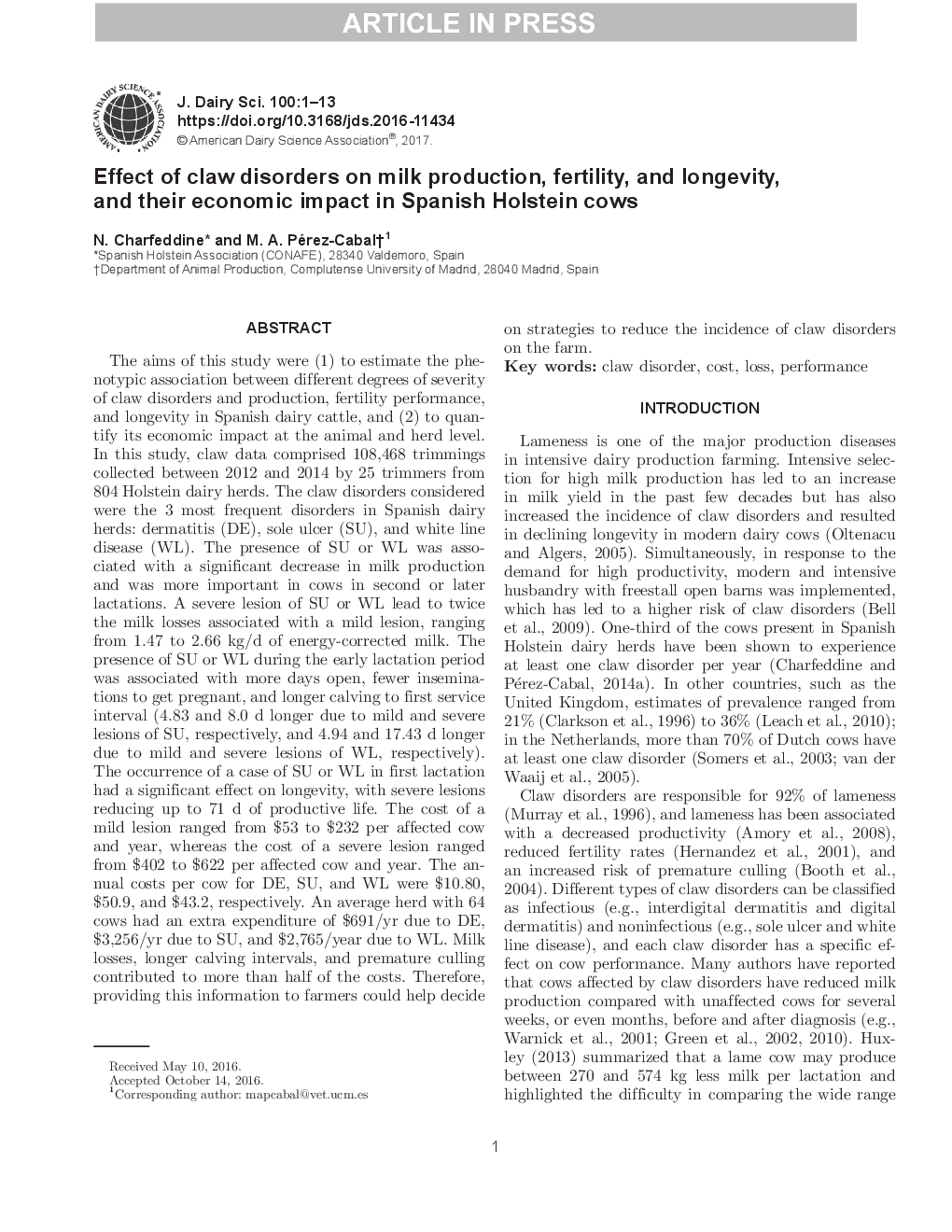The aims of this study were (1) to estimate the phenotypic association between different degrees of severity of claw disorders and production, fertility performance, and longevity in Spanish dairy cattle, and (2) to quantify its economic impact at the animal and herd level. In this study, claw data comprised 108,468 trimmings collected between 2012 and 2014 by 25 trimmers from 804 Holstein dairy herds. The claw disorders considered were the 3 most frequent disorders in Spanish dairy herds: dermatitis (DE), sole ulcer (SU), and white line disease (WL). The presence of SU or WL was associated with a significant decrease in milk production and was more important in cows in second or later lactations. A severe lesion of SU or WL lead to twice the milk losses associated with a mild lesion, ranging from 1.47 to 2.66Â kg/d of energy-corrected milk. The presence of SU or WL during the early lactation period was associated with more days open, fewer inseminations to get pregnant, and longer calving to first service interval (4.83 and 8.0 d longer due to mild and severe lesions of SU, respectively, and 4.94 and 17.43 d longer due to mild and severe lesions of WL, respectively). The occurrence of a case of SU or WL in first lactation had a significant effect on longevity, with severe lesions reducing up to 71 d of productive life. The cost of a mild lesion ranged from $53 to $232 per affected cow and year, whereas the cost of a severe lesion ranged from $402 to $622 per affected cow and year. The annual costs per cow for DE, SU, and WL were $10.80, $50.9, and $43.2, respectively. An average herd with 64 cows had an extra expenditure of $691/yr due to DE, $3,256/yr due to SU, and $2,765/year due to WL. Milk losses, longer calving intervals, and premature culling contributed to more than half of the costs. Therefore, providing this information to farmers could help decide on strategies to reduce the incidence of claw disorders on the farm.


